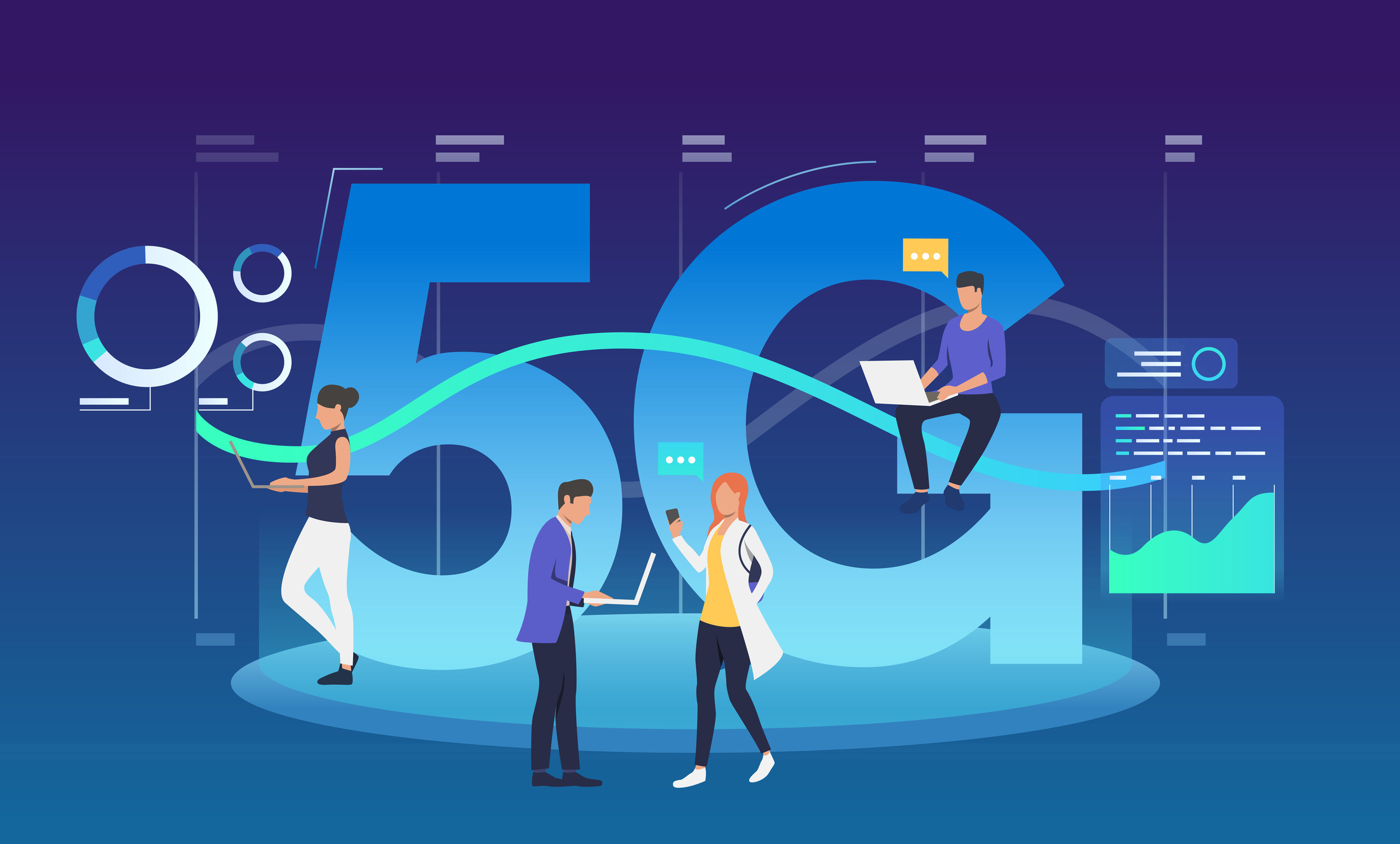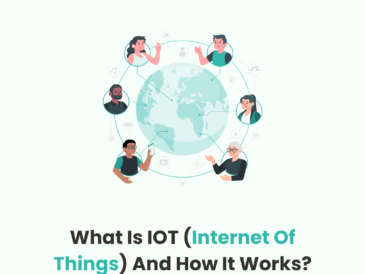5G is the latest buzzword in the technology world, and obviously for good reason. It has the potential to revolutionize the way we communicate with each other and interact with technology. This blog will explore all aspects of 5G technology- from its basics to its deployment and standards. We will delve into how it can enhance connectivity between devices, revolutionize mobile internet, and enable Internet of Things (IoT) applications.
What are you waiting for? Join us to explore how 5G has transformed the digital landscape.
Understanding 5G: A Brief Overview
5G, the new generation of wireless technology, offers faster connections with lower latency for real-time data transmission. It utilizes higher frequencies and smaller cells to enhance connectivity. 5G enables new use cases like autonomous vehicles and smart factories but requires significant infrastructure investment.
5G offers greater bandwidth, enabling faster data transfer rates and enhanced mobile broadband services. Additionally, 5G provides lower latency, making it ideal for critical applications. Moreover, 5G supports more connected devices per unit area and utilizes advanced network architecture for improved efficiency.
The Impact of 5G on Communication
5G’s high-speed wireless technology revolutionizes communication, enabling seamless connectivity for IoT devices. It enhances mobile internet experiences with faster browsing and downloads, opening up new revenue streams for service providers through innovative applications. Additionally, 5G facilitates real-time communication and collaboration across various industries.
It enhances wireless access in urban and rural areas, improves network capacity, and enables faster and more reliable internet access. It utilizes advanced radio access network technology and supports the seamless integration of multiple devices. By enhancing connectivity, 5G revolutionizes communication and opens up new possibilities for wireless communications.
That’s not it! With faster and more stable mobile internet connections, 5G revolutionizes how we access the internet on our mobile devices. It enables high-quality streaming, cloud gaming, and faster content downloading and sharing. With lower latency and higher data rates, the user experience is enhanced. Additionally, 5G supports virtual reality (VR) and augmented reality (AR) applications, opening up new possibilities for immersive experiences on mobile devices.
5G and the Internet of Things (IoT)
5G is crucial in powering the Internet of Things (IoT) ecosystem, enabling seamless connectivity and data exchange between IoT devices. It provides the necessary infrastructure for thriving IoT applications, allowing for deploying many devices in a single area. Industries can leverage 5G and IoT for improved efficiency and automation.
How does 5G Enable IoT?
5G technology offers low latency and high reliability, ensuring real-time communication for IoT applications. With efficient data transmission and processing capabilities, 5G enables IoT devices to operate with lower power consumption. Additionally, 5G supports the massive connectivity required for a wide range of IoT devices, allowing secure and scalable communication between devices and platforms.
The Role of 5G in Various Industries
5G is transforming industries with advanced connectivity and automation in manufacturing, remote patient monitoring and telehealth services in healthcare, connected infrastructure and efficient public services in smart cities, intelligent traffic management and connected vehicles in transportation, personalized shopping experiences and smart inventory management in retail.
These capabilities are made possible by the new radio waves and wireless communications of 5G technology, enabling real-time data processing through edge computing and improving services across different application areas. With 5G, industries can achieve higher quality, revenues, and a sustainable future.
- 5G in Manufacturing
5G in manufacturing enables real-time monitoring and control of processes, facilitates industrial IoT implementation for improved efficiency and productivity, supports robotics and automation integration, enables predictive maintenance and remote troubleshooting, and enhances supply chain management through real-time tracking and optimization. The rise of 5G technology brings new capabilities to the manufacturing industry, revolutionizing operations for a sustainable future.
- 5G in Healthcare
Remote healthcare monitoring is revolutionized by 5G technology, allowing for real-time patient monitoring. The faster data transmission facilitates telemedicine and virtual consultations. With 5G, there is improved access to medical records and information. Moreover, enhanced mobile broadband supports remote diagnostics and treatment.
- 5G in the Automotive Industry
5G technology revolutionizes the automotive industry by enabling faster and more reliable vehicle communication. With vehicle-to-vehicle communication, roads become safer. Connected cars can access real-time traffic information, allowing for efficient navigation. 5G also supports advanced driver assistance systems and autonomous driving. Moreover, vehicle-to-infrastructure communication facilitates smarter transportation systems.
- 5G in the Retail Sector
5G technology revolutionizes retail by providing faster and more seamless online shopping experiences. With enhanced mobile broadband, customers can enjoy immersive virtual reality shopping. Real-time inventory tracking and supply chain management are possible, while augmented reality enhances in-store shopping experiences. Additionally, 5G enables personalized and targeted advertising for retailers, increasing customer engagement and higher revenues.
Concerns Associated with 5G Technology
Security and privacy concerns arise with the increased connectivity of 5G. Robust cybersecurity measures are required to protect against threats in 5G networks. Privacy risks emerge due to the collection and use of personal data. Some have concerns about the potential health effects of 5G radiation. Addressing these concerns is crucial for the successful adoption of 5G.
Security and Privacy in the Age of 5G
5G networks necessitate advanced security measures against cyber threats. Privacy concerns arise from the vast data generated by 5G devices. Encryption and authentication protocols are crucial in 5G security. Artificial intelligence integration enhances network security. Collaboration is crucial to address security and privacy challenges in the 5G era.
The Final Say
5G technology is set to revolutionize communication in numerous ways. It offers faster speeds, lower latency, and enhanced connectivity, making it ideal for various industries and applications. The rise of 5G has paved the way for advancements in the Internet of Things (IoT), enabling seamless integration and communication between devices.
However, it is essential to address concerns regarding privacy and security in this new era of connectivity. Despite the challenges, the impact of 5G on the digital landscape is undeniable. It opens up endless possibilities for innovation and transformative technologies. As we embrace this new era of communication, we can expect to witness unprecedented growth and development across industries, ultimately shaping how we connect and interact in the future.





